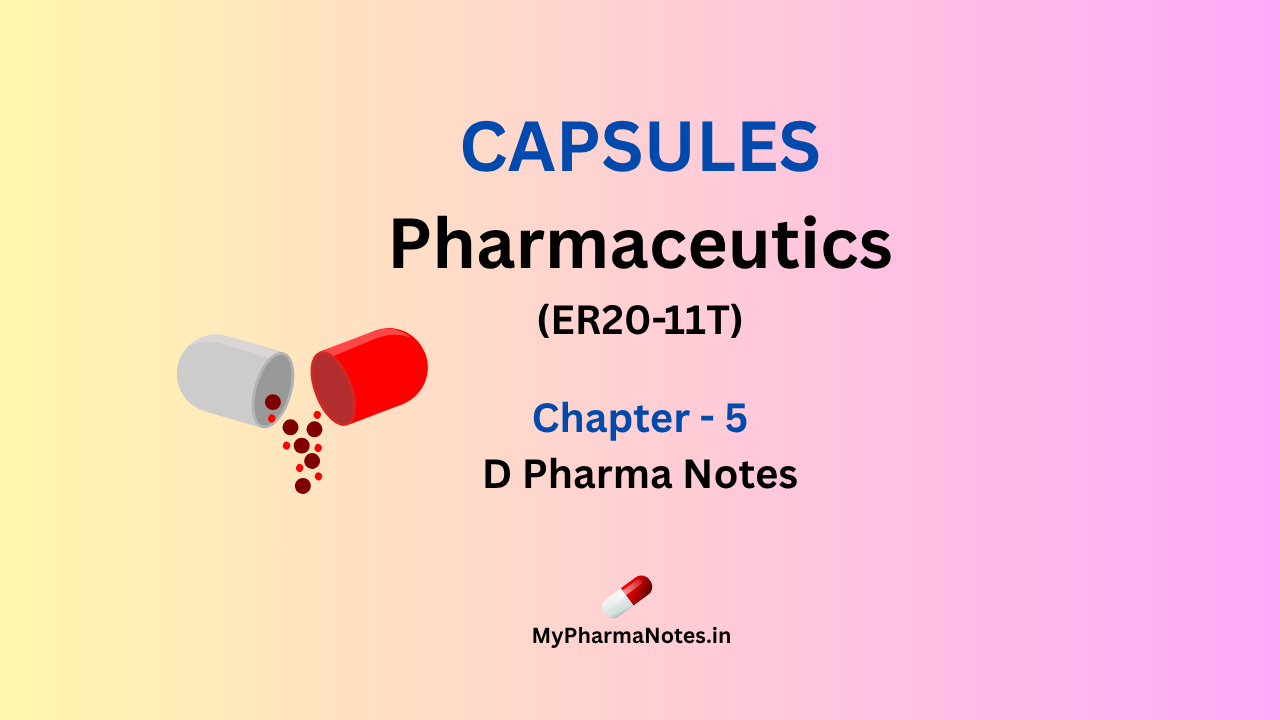Table of Contents
CAPSULES
- They are solid dosage forms consisting of single dose of drug enclosed in a water soluble shell of a suitable form of gelatin.
- Capsules include medication that’s enclosed in an outer shell.
- This outer shell is broken down in the digestive tract and the medication is absorbed into the bloodstream and then distributed and metabolized in much the same way as medication from a tablet.
- There are two main types of capsules: hard shelled and soft gel.
Type of capsules:
- Hard gelatin capsules
- Soft gelatine capsules
1. Hard Gelatin capsules:
- They are used for administration of powders or solid medicaments.
- It consists two cylindrical halves.
- Body
- Cap
- The diameter of the body is slightly smaller than the diameter of the cap but larger in length and the cap is slightly longer in diameter and smaller in length.
2. Soft Gelatin capsules:
- They are also known as soft shell. These capsules are prepared from gelatin and water to which glycerin sorbitol or a similar polyol has been added as a plasticizer which imports flexibility to the Capsules.
- These capsules are used to fill medicaments, flavours, food concentrate, cosmetics, etc.
- The capsules are used for filling liquids, semi solid, vitamins, etc.
- They are also used for containing ear, eye, nose, and throat preparations.
Difference between Hard Gelatin and Soft Gelatin capsules:
| S.No | Hard Gelatin Capsules | Soft Gelatin Capsules |
|---|---|---|
| 1. | They consists of two parts body and Cap | They consists of single unit after sealing the two halves of the capsules. |
| 2. | They are cylindrical in shape | They are round oval and tube like shape. |
| 3. | They are prepared from gelatin, titanium dioxide, colouring agent, sugars. | They are prepared from gelatin plasticizers and preservatives. |
| 4. | They consist of medicaments in the form of powder or granules. | They consist of liquids or solid dissolved in suitable excipients to give a paste |
Advantage of Capsules:
- The labour and production cost is less.
- The unpleasant taste and odour of medicaments can be masked by enclosing in Capsules.
- They are smooth and become slippery on moistening.
- They are easily swallowed.
- Enteric coating releases the medicament in the intestines.
- They are easy to handle and carry.
- They are attractive in appearance.
Disadvantages of Capsules:
- Hygroscopic drugs can not be filled in capsules, since they absorb water present in the capsules shell which ultimately breaks into pieces.
- Capsules can not be given orally to infants and children.
- The absorption rate of certain drugs like aspirin is reduced if given in capsules.
